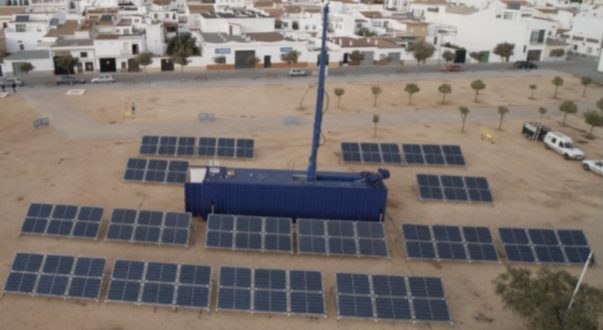Courtesy : www.ennomotive.com
Eco-friendly products technology latest
Eco-friendly technologies to fight climate change
Today, many businesses around the world are aware that indeed, climate change is a problem that affects them too. Because of this, many decision-makers are doing everything they can to help in solving this problem. One of the things they’re doing is the implementation of a number of sustainable, eco-friendly technologies or projects, such as the use of cloud storage apps to facilitate telecommuting (work from home or elsewhere), carpooling, and the switch to LED and CFL bulbs.
If you want to know more about sustainable and eco-friendly technologies, just check out our recent challenges section.
1. Rainwater Tanks Direct to the Plumbing
The water supply that reaches most businesses may be steady, safe, and clean, but they also cost much due to the amount of energy that is required to move water from source to processing facility, and from the processing plant to the millions of homes that need it. The energy used in the processing and distribution phases also comes from fossil fuels and other less-than-ideal sources, and therefore, using mains water isn’t exactly eco-friendly.
Enter harvested rainwater, rain directed to a rainwater tank by means of a catchment area and a number of pipes. Since rain, in itself, is clean, it should not take much to purify it once more of dirt particles, bacteria, and viruses; you only need to have a number of filters set up in the pipes where the rain goes down, and you should have water that can be used for a number of chores. Many of the filters you need in your system do not require energy to run, so it’s safe to say that with a rainwater harvesting system, you get water that’s safe to use without all the wasted energy.
2. Greywater Recycling Technology
These technologies, which are best set up together with a rainwater harvesting system, allows one to reuse water that was just used for another chore. The water that can be reused by this type of system can be rainwater or mains water.
A real example of the use of this technology is the solution designed for the challenge in the Amazonian community of Villa Gonzalo, Peru.
3. Solar and Wind Harvesting Technologies
The fact that Earth Hour participants (worldwide movement organized by the WWF as a symbol of commitment to the planet) are required to switch off all their home appliances and lights for one hour is proof that the electrical power we use comes from less-than-ideal sources harmful to the environment. Good thing a number of multinational companies these days have made, or are transitioning, to solar and wind harvesting tech. After all, solar power and wind are renewable, clean sources of energy.

Aurora Project: environmentally-friendly renewable energy generation system.
4. LED and CFL Lighting
LED and CFL bulbs are better than older bulbs in three ways:
- They are brighter
- Require lesser energy to function
- Last longer
We also suggest you to take a look at the challenge we launched with Grupo Antolín about innovative lighting in car interiors.
5. Biodegradable Plastic
While not exactly new technology, just like the above, many companies are still struggling with making the switch to this type of plastic (if they just couldn’t abandon its use altogether). This is despite the fact that it’s a lot safer for the environment since it does break down in time.

Degradable Packaging Material

Bottles made with ocean plastic
Take a look at the garbage collection, separation and transportation system to contribute to the reduction of polluting plastics deposited in the Chacahua Lagoon (Oaxa, Mexico).
6. Non-electric or Low-Power Exercise Equipment
These days, a lot of energy is required to power the big city gyms, and as mentioned above, this energy used is sourced from not-so-good sources that are harmful to the environment. Fortunately, this engineering challenge can be solved by using non-electric versions of certain exercise equipment, along with low-power versions best for those who want to know how well they’re doing in certain aspects of that day’s workout session. With this equipment, gyms can save money on energy, and at the same time, help save the environment.
These are a few ideas to help your business become greener. Can you tell us about other eco-friendly technologies to protect the environment?



